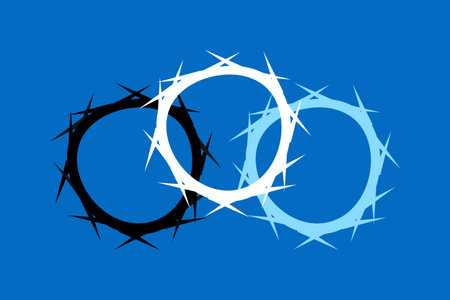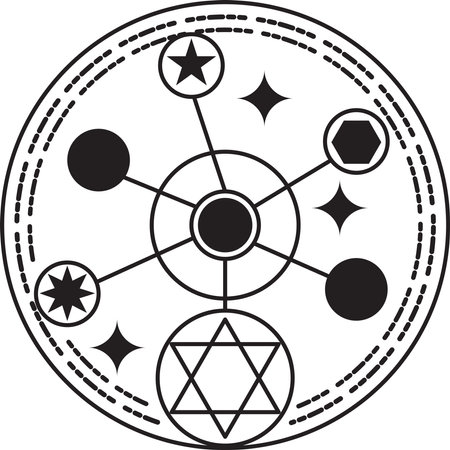1. The Timeless Allure of Glastonbury Festival
In the rolling fields of Somerset, Glastonbury Festival emerges every summer like a modern-day pilgrimage, drawing thousands to its vibrant heart. Yet, beneath the iconic images of muddy wellies and world-famous headliners lies a story that stretches far beyond music. Born in 1970 as a countercultural celebration, Glastonbury has evolved into a sanctuary for those seeking more than just entertainment—a place where ancient mysticism, astrology, and the quest for spiritual meaning intertwine seamlessly with British festival culture. Over decades, this event has become not only a showcase for musical innovation but also a living tapestry woven with threads of contemporary spirituality, personal exploration, and cosmic curiosity. Here, amidst stone circles and healing fields, the festival’s journey mirrors that of many modern Britons—yearning for connection, understanding, and perhaps a touch of magic in an ever-shifting world.
Astrology’s Resurgence in Modern Britain
In recent years, astrology has re-emerged as a beloved cultural current across the UK, weaving itself into both the intimate rituals of daily life and the collective experiences found at gatherings like Glastonbury Festival. Far from being relegated to dusty library shelves or whispered conversations, birth charts and planetary alignments now claim vibrant spaces on British Instagram feeds, coffee shop noticeboards, and even late-night festival bonfires. This renaissance is not just about star signs—it’s an embracing of celestial wisdom as a source of insight, identity, and community.
The renewed fascination with astrology in Britain can be attributed to a blend of digital accessibility and a yearning for meaning in a rapidly changing world. As more young people seek personalised guidance outside traditional institutions, astrology offers a language of self-discovery that feels both ancient and refreshingly modern. Whether it’s checking Mercury retrograde dates before booking train tickets or sharing memes about the emotional tides of Cancer season, celestial motifs have become intimately tied to the rhythms of British life.
At festivals like Glastonbury, astrology is more than a backdrop; it becomes a living dialogue. Strangers swap rising signs over vegan burgers, friends compare Venus placements under fairy-lit tents, and workshops on lunar cycles fill up faster than you can say “solar return.” The following table highlights how astrology has seamlessly integrated into different aspects of contemporary British culture:
| Aspect of Life | Astrological Influence | British Cultural Touchpoint |
|---|---|---|
| Social Media | Daily horoscopes & meme pages | Instagram stories & Twitter threads |
| Festivals | Birth chart readings & moon rituals | Glastonbury workshops & healing fields |
| Everyday Decisions | Timing choices with planetary transits | Planning events around Mercury retrograde |
| Friendship & Dating | Zodiac compatibility chats | Pubs & group chats across the UK |
This gentle interweaving of starlit guidance into everyday moments gives modern British spirituality its unique flavour—one that is at once playful, communal, and profoundly attuned to both earthly and cosmic cycles.

3. Gathering Under the Stars: Spiritual Communities at Glastonbury
As dusk settles over the rolling Somerset fields, Glastonbury Festival’s spirit truly comes alive—not just through music, but through a tapestry of spiritual communities that weave their magic beneath the open sky. Here, beneath strings of fairy lights and fluttering prayer flags, you’ll find an eclectic blend of healers, astrologers, tarot readers, and crystal traders. Each stall offers a gentle invitation to explore something beyond the everyday, blending ancient wisdom with a thoroughly modern British openness. There’s an unmistakable sense of camaraderie as festival-goers gather for group meditations or pause to have their birth charts read by candlelight. What makes this gathering so distinctly British is its embrace of gentle eccentricity: a willingness to try new things without judgement, and to respect every path—whether it’s rooted in old druidic traditions or contemporary mysticism. The atmosphere is warm and accepting; here, sceptics and seekers alike are welcome to share stories over cups of herbal tea or marvel at a moonlit gong bath. It’s this unique mingling of the mystical and the communal that gives Glastonbury its reputation as a spiritual haven—a place where star signs and stardust meet under the quintessentially unpredictable English sky.
4. The British Spiritual Scene: Tradition Meets Modernity
Step into the vibrant tapestry of the modern British spiritual scene, and you’ll find a landscape where ancient wisdom intertwines with fresh perspectives. Nowhere is this unique blend more visible than in the mystical fields of Glastonbury during festival season. Here, echoes of druidic rituals and Celtic folklore resonate alongside the hum of contemporary mindfulness workshops, creating a safe haven for seekers of all backgrounds.
Ancient Roots and Living Folklore
Britain’s spiritual heritage stretches back millennia to the druids—guardians of the land and keepers of sacred knowledge. Their reverence for nature, solstice celebrations, and deep connection to earth energies have left an indelible mark on today’s spiritual practices. This ancient wisdom is kept alive not just in legend, but through rituals still observed in rural villages and within Glastonbury’s own stone circles.
Folklore, Festivals, and Everyday Magic
The British Isles are steeped in stories—tales of faeries, ley lines, and Arthurian myth mingle with everyday beliefs in luck and fate. During Glastonbury Festival, these themes come alive in both grand performances and intimate gatherings. Folk musicians weave age-old ballads under bunting-strewn tents, while storytellers remind us that magic can be found in both the extraordinary and the mundane.
The Modern Mindfulness Movement
Yet it’s not all about looking back; modern Britain embraces new-age philosophies with open arms. Mindfulness meditation sessions sit comfortably beside tarot readings and yoga flows on the festival schedule. This openness reflects a broader trend in British society towards holistic well-being—a desire to balance mental health with spiritual fulfilment.
| Ancient Traditions | Modern Practices |
|---|---|
| Druidic ceremonies Seasonal festivals Storytelling by firelight |
Meditation workshops Astrology readings Sound healing sessions |
This harmonious blend means that whether you’re drawn by the call of ancestral lands or seeking a space for inner reflection, Glastonbury offers a place where tradition meets modernity—each enriching the other beneath those ever-watchful Somerset skies.
5. Cosmic Conversations: Personal Growth & Connection
Within the vibrant fields of Glastonbury, beneath patchwork skies and fluttering flags, heartfelt stories quietly unfold between festival-goers. Here, astrology and spiritual practices become more than just trends—they are gentle guides for genuine connection. People share their birth charts by lantern light or swap stories of Mercury retrogrades over cups of strong British tea. These exchanges aren’t about impressing with cosmic knowledge, but about listening and being heard—a rare gift in the swirl of modern life.
Take Olivia, a Libra from Manchester, who confides how learning about her rising sign at Glastonbury gave her new words for her lifelong search for balance. Or Tom, a Capricorn from Brighton, who joined a group meditation circle under an ancient oak. He recalls how strangers became friends as they exchanged star signs and dreams, weaving together laughter and vulnerability in true British fashion—modest but deeply felt.
Astrological insights offer language to explore our inner worlds and understand others’ journeys. Many festival-goers speak of how these cosmic conversations spark compassion. When someone shares that they’re feeling the weight of Saturn’s lessons, or the restless urge of a Gemini Moon, there’s a collective nod—a recognition that we are all navigating our own constellations of challenge and hope.
This spirit of openness is part of Glastonbury’s magic. Underneath eclectic costumes and painted faces lies a yearning for authenticity. Spiritual workshops—whether on tarot, crystal healing, or guided meditation—become safe harbours where people drop their defences. Here, the British tendency for emotional reserve gently softens; hugs are given freely, tears are met without embarrassment, and laughter rings out under Somerset stars.
In these moments, personal growth is not measured by milestones but by quiet shifts: the courage to speak honestly, the humility to listen deeply, and the trust to be vulnerable among strangers. The festival becomes a tapestry woven from countless small acts of kindness and cosmic curiosity—a living testament to Britain’s evolving spiritual scene.
6. A Soft Rebellion: Astrology and Spirituality as Modern Resistance
Amid the vibrant swirl of music, art, and community at Glastonbury Festival, a quieter revolution takes root—one steeped in astrology and spiritual openness. Far from the blaring banners or loud protests that often define acts of resistance, this movement is marked by gentle curiosity, heartfelt connection, and an embrace of ancient wisdom through modern eyes. Here, spirituality isn’t a retreat from reality but a softly defiant stand against rigid structures, inviting people to dream up a more inclusive future.
For many who gather at Glastonbury, astrology serves as both compass and conversation starter. It’s a language that transcends social divides—whether you’re a Londoner with Saturn in Aquarius or a Bristol creative exploring your Pisces moon. By reading birth charts beneath canvas tents or sharing cosmic insights over chai, festival-goers subtly challenge the dominance of pure rationalism that has shaped much of British society. They reclaim space for intuition and collective wonder, offering gentle resistance to systems that have long prioritised conformity over individuality.
This soft rebellion is woven into the fabric of the festival itself. Instead of hierarchy, there is co-creation; instead of dogma, dialogue. The celebration of different beliefs—be it astrological archetypes or earth-based rituals—fosters a culture where everyone’s inner wisdom is valued. In this sense, the act of tuning into one’s star signs or meditating together becomes revolutionary, not because it overturns order with chaos, but because it invites healing and belonging in place of division.
Astrology here isn’t about escapism; it’s about empowerment. By mapping their own cosmic blueprints, people carve out new narratives for themselves—ones less bound by class or expectation and more attuned to personal growth. This self-exploration ripples outward: when individuals feel seen and supported in their uniqueness, communities grow stronger and more compassionate. It’s a quiet upending of the status quo rooted in empathy rather than antagonism.
Perhaps most beautifully British is how this spiritual awakening carries a gentle humour and humility—a knowing wink from someone who reads horoscopes “just for fun,” yet finds real comfort in the stars’ stories. It’s a subtle way to resist cynicism without losing one’s wit or warmth. At Glastonbury, this blend of earnest seeking and light-hearted camaraderie creates fertile ground for imagining what society could look like if kindness led the way.
In embracing astrology and spiritual exploration at Glastonbury, attendees are sketching out an alternative vision for Britain’s future—one that honours both tradition and transformation. This soft rebellion doesn’t shout; it sings quietly from within fields lit by moonlight and possibility, inviting all who listen to join in shaping a world guided by both heart and hope.


